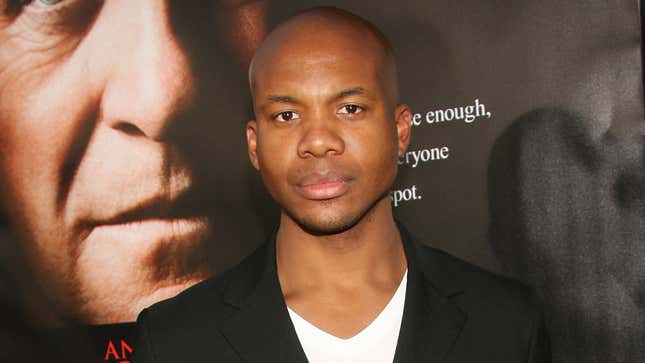Leonard Roberts Describes Racism on Heroes Set, Says Co-Star Ali Larter Was Part of the Problem
EntertainmentTV

Actor Leonard Roberts (Drumline, Buffy the Vampire Slayer) has written a powerful op-ed for Variety, detailing issues of systemic racism while on-set of the critically acclaimed NBC television drama Heroes. In 2006, Roberts portrayed D.L. Hawkins, a superhero who possesses the ability to pass through solid matter, and husband to Niki Sanders (played by Ali Larter), in the first season—a role he claims was described in an early draft of the pilot as “a white man’s nightmare.”
Roberts describes a unilateral and dismissive work environment, where he was told his character would appear in the pilot episode, then the second, then pushed all the way to the sixth. He recalls being pushed to the back and to the side of photo-ops, despite being a series regular, making room for non-Black colleagues. He unpacks his relationship with Larter, his onscreen wife and an actor who he says behaved contemptuously towards him: In one instance, he writes that she refused to hide her shirt strap in an intimate scene between the two characters to give the appearance of toplessness, without discussing the scene with her scene partner—though she was open, collaborative, and improvisational, Roberts writes, in a comparable scene with Nathan Petrelli, played by white actor Adrian Pasdar. As the season went on, nonwhite characters were killed off, until finally Roberts was told D.L. would not return for season two—over the phone by show creator Tim Kring, because of “the Ali Larter situation.” Executive Producer Dennis Hammer assured Roberts he was “loved,” and fans “hated” Larter for her behavior. “Don’t think of this as a situation where the Black man loses and the white woman wins,” Roberts says Hammer assured him.
-

-

-

-

-

-

-

-

-

-

-

-

-

-

-

-

-

-

-

-

-

-

-

-

-

-

-

-

-

-

-

-

-

-

-

-

-

-

-

-








































